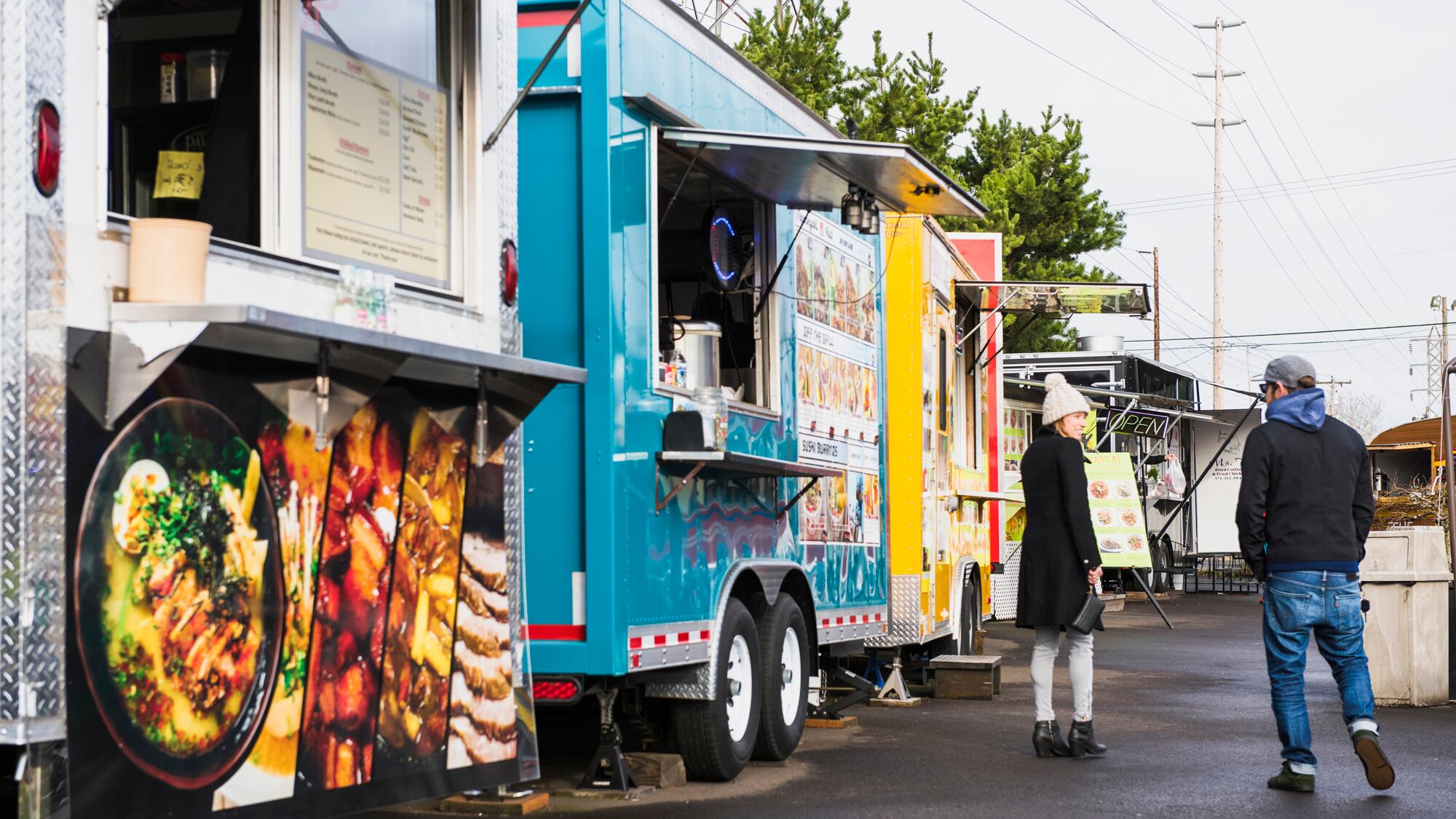The Multomah County Commission, which is responsible for regulating hygiene and food safety at restaurants, will consider an ordinance this week that would place greater requirements on the landowners who host food cart pods.
"This has been a long time coming. For years our inspectors and food cart operators have been frustrated, and it reached a point where something had to change," said Jeff Martin, who oversees the county's restaurant inspections, in a statement. "And the process has been great. Operators and owners have been able to come to the table with public health advocates and agencies to come up with recommendations that work for everyone."
Currently, individual cart operators are responsible for utilities such as water and waste disposal, and must make their own pest control arrangements. That has created a lack of standards and, in some cases, created health and safety risks the county seeks to remedy. (Despite the high-profile loss of some pod sites, there are now 962 food carts in the county.)
The county seeks to shift responsibility to the owners of the cart pods.
"The operators of food cart pods would be required to provide power, clean water, trash and recycling services to the vendors, as well as control for rodents, a plan for how to clean up wastewater spills, and assurance that carts are set far enough apart to prevent fire from spreading," Multnomah County said in statement.
The ordinance is the result of consultations between cart operators, their landlords and county health officials that began two years ago.
"Food carts and pods are a vital part of the county's food scene. They create economic opportunity and valuable placemaking in our cities and neighborhoods," said Environmental Health Director Jae Douglas, Ph.D. "To keep these pods thriving, we're closing a loophole that may put our communities at risk. We're raising the standards on pods to meet best practices already in place for mobile food carts."
